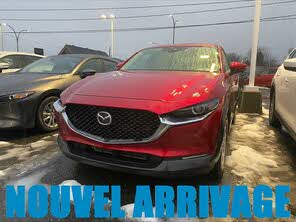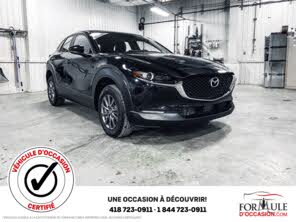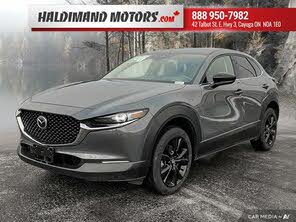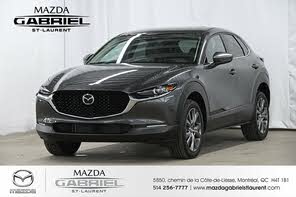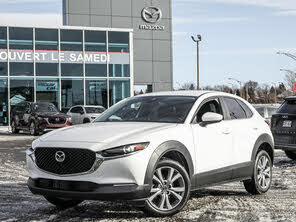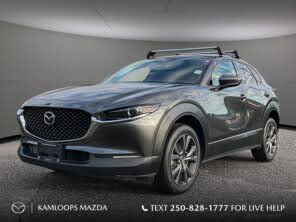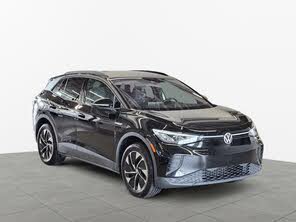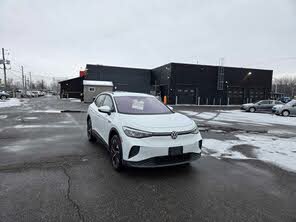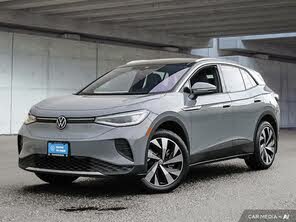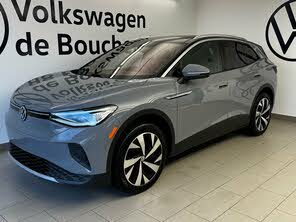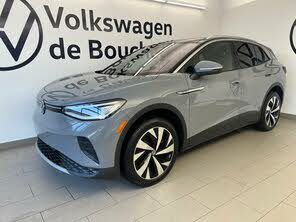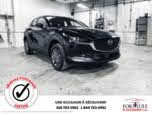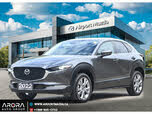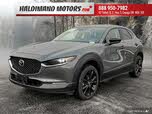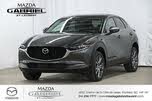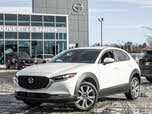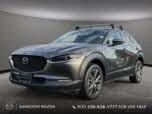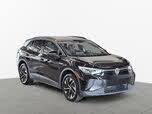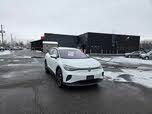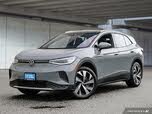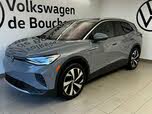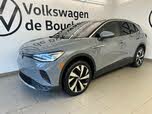2022 Mazda CX-30 vs 2022 Volkswagen ID.4
Overview | |
MSRP$22,200 | MSRP$41,230 |
Average price$28,493 | Average price$39,200 |
Listings45 | Listings7 |
Ratings & Reviews | |
User Reviews | User Reviews |
Expert reviews8.0 out of 10 | Expert reviews |
Pros
| |
2022 Mazda CX-30 Reviews SummaryAs a brand, Mazda has been punching above its weight for well over a decade now. Whether it’s the three-row CX-9 SUV or Mazda3 compact car, you can expect a higher-quality interior and a more refined ride than respective rivals in a given segment. This is no different for the 2022 Mazda CX-30. The CX-30 is a subcompact crossover SUV introduced as a 2020 model, supplementing the similar-sized Mazda CX-3. It carries over to the 2022 model year, just as the CX-3 has been discontinued. The CX-30 addresses the shortcomings of the CX-3 without losing any of that crossover’s positive attributes. The CX-30 has a more spacious cabin than the CX-3, but retains the fun-to-drive nature, and has an even more upscale cabin. Read on to learn how Mazda’s new subcompact SUV stands out within this popular vehicle segment. | |
2022 Volkswagen ID.4 Reviews Summary | |
No video found | No video found |
Popular Features & Specs | |
Engine2.5L 186 hp I4 | Engine201 hp Electric |
Drive TrainAWD | Drive TrainRWD |
Seating Capacity5 | Seating Capacity5 |
Horsepower186 hp @ 6000 rpm | Horsepower |
EV Battery Capacity | EV Battery Capacity82 kWh |
MPG City24 | MPG City116 |
MPG Highway31 | MPG Highway98 |
Battery Charge Time (240V) | Battery Charge Time (240V)7.5 hours |
Engine | |
Engine Name2.5L 186 hp I4 | Engine Name201 hp Electric |
Torque186 lb-ft @ 4000 rpm | Torque |
Horsepower186 hp @ 6000 rpm | Horsepower |
Battery Charge Time (240V) | Battery Charge Time (240V)7.5 hours |
DrivetrainAWD | DrivetrainRWD |
Fuel Economy | |
EV Battery Capacity | EV Battery Capacity82 kWh |
MPG City24 | MPG City116 |
MPG Highway31 | MPG Highway98 |
Interior | |
Seating Capacity5 | Seating Capacity5 |
Key Features | |
Navigation System | Navigation SystemOptional |
Safety | |
Front Crash Overall5 | Front Crash Overall5 |
Side Crash Overall5 | Side Crash Overall5 |
Dimensions & Capacity | |
Cargo Space20.2 cu ft | Cargo Space30.3 cu ft |
Curb Weight3388 lbs | Curb Weight4568 lbs |
Height61.7 in | Height64.6 in |
Length173.0 in | Length180.5 in |
Width70.7 in | Width72.9 in |
Wheelbase104.4 in | Wheelbase108.9 in |
Maximum Payload993 lbs | Maximum Payload937 lbs |
Number of doors4 | Number of doors4 |
Maximum Towing Capacity | Maximum Towing Capacity2200 lbs |
Standard Towing Capacity | Standard Towing Capacity2200 lbs |
Overview | ||
MSRP | $22,200 | $41,230 |
Average price | $28,493 | $39,200 |
Listings | ||
Ratings & Reviews | ||
User reviews | ||
Expert reviews | 8.0 out of 10Read full review | |
Pros & cons | Pros
| |
Summary | As a brand, Mazda has been punching above its weight for well over a decade now. Whether it’s the three-row CX-9 SUV or Mazda3 compact car, you can expect a higher-quality interior and a more refined ride than respective rivals in a given segment. This is no different for the 2022 Mazda CX-30. The CX-30 is a subcompact crossover SUV introduced as a 2020 model, supplementing the similar-sized Mazda CX-3. It carries over to the 2022 model year, just as the CX-3 has been discontinued. The CX-30 addresses the shortcomings of the CX-3 without losing any of that crossover’s positive attributes. The CX-30 has a more spacious cabin than the CX-3, but retains the fun-to-drive nature, and has an even more upscale cabin. Read on to learn how Mazda’s new subcompact SUV stands out within this popular vehicle segment. | |
Video | No video found | No video found |
Popular Features & Specs | ||
Engine | 2.5L 186 hp I4 | 201 hp Electric |
Drive Train | AWD | RWD |
Seating Capacity | 5 | 5 |
Horsepower | 186 hp @ 6000 rpm | |
EV Battery Capacity | 82 kWh | |
MPG City | 24 | 116 |
MPG Highway | 31 | 98 |
Battery Charge Time (240V) | 7.5 hours | |
Engine | ||
Engine Name | 2.5L 186 hp I4 | 201 hp Electric |
Torque | 186 lb-ft @ 4000 rpm | |
Horsepower | 186 hp @ 6000 rpm | |
Battery Charge Time (240V) | 7.5 hours | |
Drivetrain | AWD | RWD |
Fuel Economy | ||
EV Battery Capacity | 82 kWh | |
MPG City | 24 | 116 |
MPG Highway | 31 | 98 |
Interior | ||
Seating Capacity | 5 | 5 |
Key Features | ||
Navigation System | Optional | |
Safety | ||
Front Crash Overall | 5 | 5 |
Side Crash Overall | 5 | 5 |
Dimensions & Capacity | ||
Cargo Space | 20.2 cu ft | 30.3 cu ft |
Curb Weight | 3388 lbs | 4568 lbs |
Height | 61.7 in | 64.6 in |
Length | 173.0 in | 180.5 in |
Width | 70.7 in | 72.9 in |
Wheelbase | 104.4 in | 108.9 in |
Maximum Payload | 993 lbs | 937 lbs |
Number of doors | 4 | 4 |
Maximum Towing Capacity | 2200 lbs | |
Standard Towing Capacity | 2200 lbs | |

By: CarGurus + AI
At CarGurus, our team of experienced automotive writers remain at the heart of our content operation, conducting hands-on car tests and writing insightful guides that are backed by years of industry experience. To complement this, we are harnessing AI to make our content offering more diverse and more helpful to shoppers than ever. To achieve this, our AI systems are based exclusively on CarGurus content, ratings and data, so that what we produce is both unique to CarGurus, and uniquely helpful to car shoppers.



